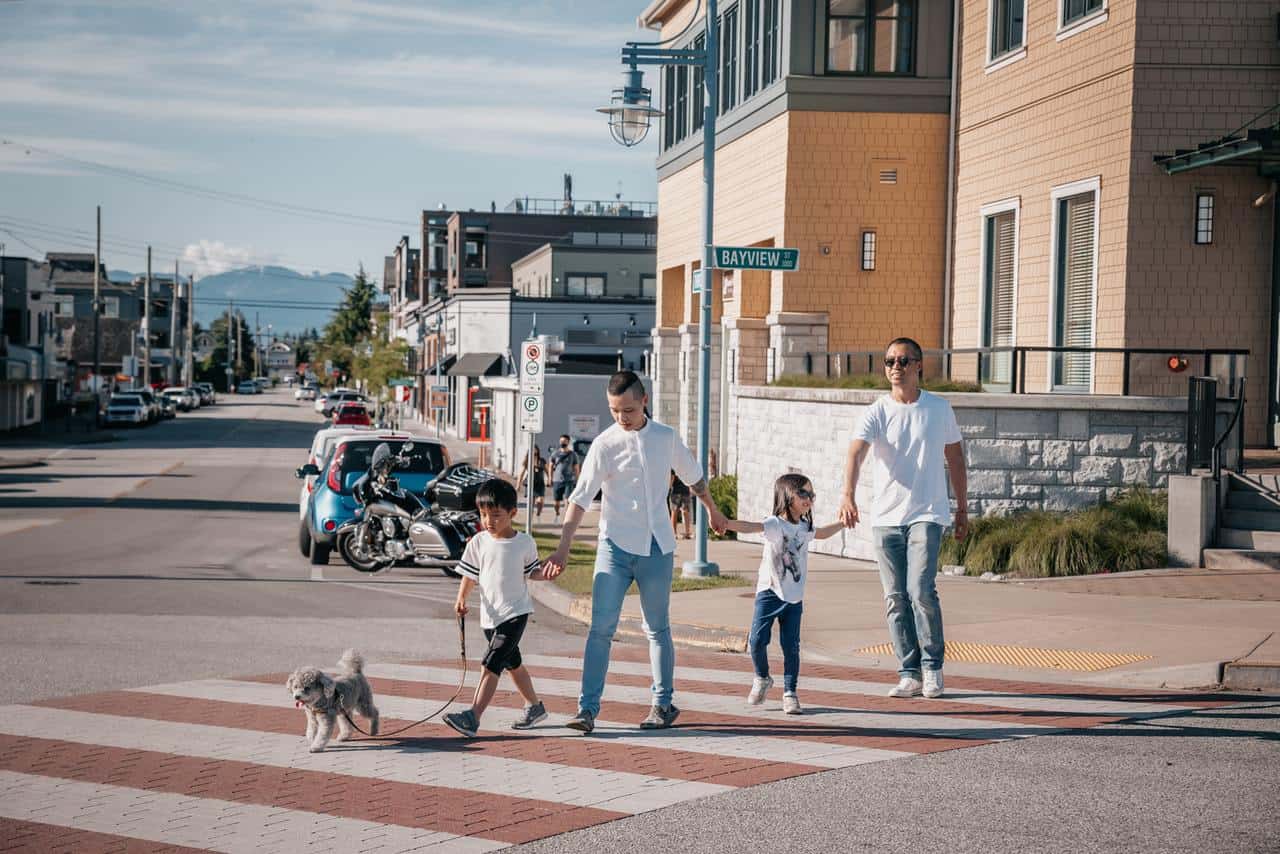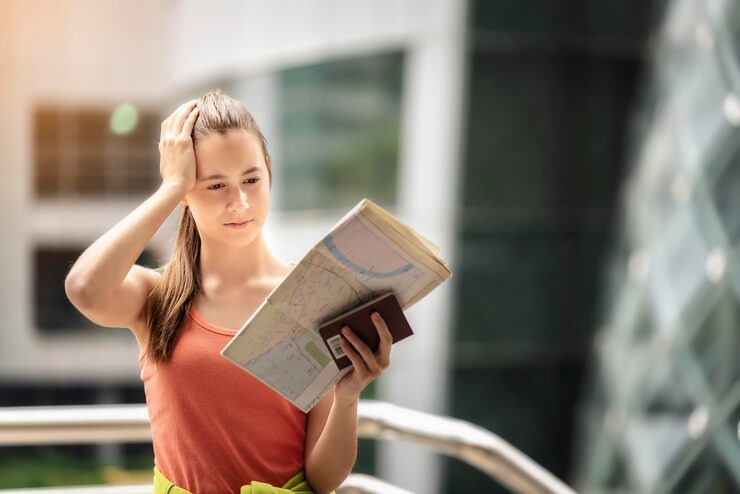Traveling is one of life’s greatest joys—new cultures, breathtaking views, and the thrill of the unknown. But let’s be real: the world can be unpredictable. Over the years, my partner and I have wandered through bustling cities, remote villages, and everything in between, collecting stories, scars, and a few hard-earned lessons. This article shares 10 travel safety tips born from our own adventures, designed to keep you secure while you chase your wanderlust. Whether you’re a solo backpacker or planning a family getaway, these tips will help you travel smarter, not harder.
Why Travel Safety Matters
Travel safety isn’t just about avoiding pickpockets or sketchy alleys—it’s about ensuring your journey is memorable for the right reasons. A single misstep, like leaving your passport in a hostel or trusting a too-good-to-be-true deal, can turn a dream trip into a nightmare. Our tips come from real experiences, like the time we narrowly escaped a scam in Bangkok or learned the hard way about local laws in Dubai. Let’s dive into practical advice to keep you safe, informed, and ready for anything.
Tip 1: Research Your Destination Like a Detective
Before you even pack your bags, channel your inner Sherlock. Understanding your destination’s culture, laws, and risks is non-negotiable. During our trip to Morocco, we learned that public displays of affection could land you in hot water—knowledge that saved us from an awkward encounter.
How to Research Effectively
Dig into travel advisories on sites like Travel.State.gov and read recent traveler reviews on forums like TripAdvisor. Check local news for current events and brush up on cultural norms, like dress codes or tipping practices. Apps like Culture Trip can offer quick insights into local customs. This prep work ensures you’re not blindsided by unexpected rules or situations.
Tools for Destination Research
| Tool | Purpose | Where to Get It |
|---|---|---|
| Travel.State.gov | Official travel advisories | travel.state.gov |
| TripAdvisor | Traveler reviews and tips | tripadvisor.com |
| Culture Trip | Cultural insights and guides | theculturetrip.com |
Tip 2: Secure Your Documents Like They’re Gold
Losing your passport or ID can turn a trip into a bureaucratic nightmare. On a trip to Peru, I left my wallet in a taxi—cue a frantic chase through Lima’s streets. Spoiler: I got it back, but not without stress and a few gray hairs.
Backup Your Documents
Scan your passport, visas, and IDs, then store them securely in a cloud service like Google Drive or Dropbox. Carry physical copies in a separate bag and email them to a trusted contact. If disaster strikes, having backups makes replacing documents much easier.
Pros and Cons of Digital vs. Physical Copies
- Digital Copies
- Pros: Accessible anywhere, easy to share, no physical loss risk.
- Cons: Requires internet access, vulnerable to cyber threats.
- Physical Copies
- Pros: No tech needed, universally accepted.
- Cons: Can be lost or stolen, bulky to carry.
Tip 3: Pack a Smart Travel Bag
Your bag is your lifeline on the road, so choose wisely. In Thailand, my partner’s shoulder bag was nearly snatched by a motorbike thief. A cross-body bag with slash-proof straps would’ve saved us a heart-pounding sprint.
Best Bags for Safety
Invest in a travel bag with security features like locking zippers or RFID-blocking pockets. Brands like Pacsafe offer backpacks and cross-body bags designed for travelers. Keep your bag in front of you in crowded areas, and never leave it unattended, even for a quick photo.
Comparison of Travel Bag Brands
| Brand | Key Features | Price Range |
|---|---|---|
| Pacsafe | Slash-proof, RFID-blocking, lockable | $50–$150 |
| Travelon | Anti-theft zippers, lightweight | $30–$100 |
| Osprey | Durable, comfortable, less focus on anti-theft | $80–$200 |
Tip 4: Stay Connected with Loved Ones
When you’re halfway across the globe, staying in touch isn’t just nice—it’s a safety net. During a solo hike in New Zealand, I slipped and sprained my ankle. Sharing my location with a friend via WhatsApp meant help arrived faster than I could say “kiwi.”
Tools for Staying Connected
Use apps like WhatsApp or Find My Friends to share your real-time location with trusted contacts. Before you leave, save emergency numbers, like your country’s embassy, in your phone. A portable charger ensures your device stays powered up, especially in remote areas.
Tip 5: Trust Your Gut in New Places
Your instincts are your best guide in unfamiliar territory. In Istanbul, a “friendly” local offered us a free tour that felt off. We politely declined, and later learned it was a common scam to lure tourists into overpriced shops. Trust that gut feeling—it’s usually right.
How to Spot Red Flags
Be wary of overly friendly strangers offering unsolicited help or deals that seem too good to be true. Research common scams in your destination using sites like Lonely Planet or Reddit’s travel forums. If something feels wrong, walk away confidently.
Tip 6: Blend In, Don’t Stand Out
Tourists are easy targets when they scream “outsider.” In Paris, my bright red backpack and loud English drew pickpockets like moths to a flame. Dressing like a local and keeping a low profile can save you from unwanted attention.
Tips for Blending In
Learn a few local phrases to communicate basic needs—apps like Duolingo are great for this. Avoid flashy jewelry or designer clothes, and mimic local fashion trends. Observe how locals carry themselves and follow suit to avoid standing out.
Tip 7: Use Reputable Transportation
Public transport is great, but not all options are equal. In Mexico City, we hopped into an unmarked taxi that took us on a “scenic” detour to jack up the fare. Sticking to licensed services would’ve saved us the hassle.
Safe Transportation Options
Use apps like Uber or Bolt for reliable rides, or book through trusted local companies recommended by your hotel. For public transport, check schedules and routes on apps like Citymapper. Always verify the driver’s identity before getting in.
Pros and Cons of Ride-Sharing vs. Taxis
- Ride-Sharing (e.g., Uber)
- Pros: Trackable rides, upfront pricing, driver ratings.
- Cons: Requires internet, may not be available in rural areas.
- Taxis
- Pros: Widely available, no app needed.
- Cons: Risk of scams, inconsistent pricing.
Tip 8: Protect Your Money and Valuables
Money mishaps can derail your trip faster than you can say “exchange rate.” In Rome, a crowded metro left me lighter by one credit card—thankfully, I had a backup hidden in my shoe.
Money Safety Tips
Use a money belt or hidden pouch for cash and cards. Split your money across multiple locations (e.g., bag, wallet, hotel safe). Notify your bank of your travel plans to avoid card freezes, and carry a mix of cash and cards for flexibility.
Tip 9: Stay Aware of Your Surroundings
Daydreaming about gelato in Venice almost cost me my phone to a slick pickpocket. Staying alert in crowded or unfamiliar places is crucial, especially when you’re jet-lagged or distracted by new sights.
How to Stay Vigilant
Keep your phone and valuables secure, and avoid using them in crowded areas. Use earbuds instead of headphones to stay aware of sounds around you. At night, stick to well-lit, busy areas, and always know your route back to your accommodation.
Tip 10: Get Travel Insurance
No one plans to get sick or lose luggage, but it happens. On a trip to Bali, a sudden stomach bug landed me in a clinic. Travel insurance covered the bills, saving me from a hefty out-of-pocket expense.
Choosing the Right Insurance
Compare plans on sites like Squaremouth or InsureMyTrip for coverage that fits your needs, like medical emergencies or trip cancellations. Read the fine print for exclusions, and keep policy details handy. It’s a small price for peace of mind.
Comparison of Top Travel Insurance Providers
| Provider | Key Coverage | Price Range (per trip) |
|---|---|---|
| World Nomads | Adventure activities, medical | $50–$150 |
| Allianz | Trip cancellation, baggage loss | $40–$120 |
| SafetyWing | Budget-friendly, digital nomads | $30–$100 |
People Also Ask (PAA) Section
What are the most common travel scams to avoid?
Common scams include fake tour guides, overpriced taxis, and “free” gifts that come with a catch. Research your destination’s scams on sites like Lonely Planet and stay skeptical of unsolicited offers. Always verify vendors through trusted platforms before paying.
How can solo travelers stay safe?
Solo travelers should share their itinerary with a trusted contact, stick to well-populated areas, and avoid sharing personal details with strangers. Apps like Find My Friends and travel safety blogs on sites like Nomadic Matt offer practical tips.
What should I do if I lose my passport?
Contact your country’s embassy immediately and provide your backup document copies. File a police report if required, and notify your travel insurance provider. Keep embassy contact info saved in your phone for quick access.
How do I choose a safe hotel?
Look for hotels with high ratings on platforms like Booking.com or TripAdvisor, focusing on reviews mentioning safety. Check for secure locks, 24/7 staff, and safe locations. Contact the hotel directly to confirm amenities like safes or secure parking.
FAQ Section
How do I know if a destination is safe to visit?
Check travel advisories on Travel.State.gov or similar government sites for up-to-date risk assessments. Read recent traveler reviews on forums like Reddit or TripAdvisor for real-world insights. Local news and cultural guides can also highlight potential risks.
What’s the best way to carry money while traveling?
Use a money belt or hidden pouch for most of your cash and cards, and keep small amounts in a wallet for daily use. Split your money across multiple locations, and use digital payments like Apple Pay where possible to minimize cash handling.
Should I get travel insurance for short trips?
Yes, even short trips can have unexpected issues like flight cancellations or medical emergencies. Compare budget-friendly plans on InsureMyTrip for coverage that suits your trip length. It’s a small investment for big protection.
How can I avoid pickpockets in crowded areas?
Wear a cross-body bag with secure zippers, keep valuables in front of you, and avoid flashy items like expensive watches. Stay alert in crowds, and use RFID-blocking wallets to protect cards. Apps like Pacsafe’s FindMyBag can help locate stolen bags.
What apps are best for travel safety?
Apps like TripIt for itinerary tracking, WhatsApp for staying connected, and Citymapper for navigation are great for safety. Culture Trip offers cultural insights, while Travel.State.gov’s Smart Traveler app provides real-time advisories.
Final Thoughts
Traveling is about embracing the unknown, but that doesn’t mean you should leave safety to chance. These 10 tips, forged from our own triumphs and near-misses, are your roadmap to exploring the world with confidence. From researching like a pro to trusting your instincts, each step helps you stay one step ahead of trouble. So pack your bags, double-check your documents, and hit the road—adventure awaits, and now you’re ready for it. Safe travels!




